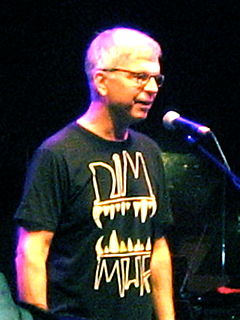A Quote by Bruce Johnston
Well, a lot of our concerts do okay, and I know we still get royalty checks which still isn't that important, but again, I have to just say that we're making our records.
Related Quotes
I chose to be a photographer twenty-two years ago, but I don't know that I'd make that choice again. Back in the early eighties, I still thought I was doing okay, trying to order and shape the world with my camera. Now that I know a bit more about living and dying, about our planet and its complex problems, I'm a lot less comfortable with my images of people. Still, I haven't a clue what else to do.
I don't know whether we think in moving images or whether we think in still images. I have a suspicion that on our hard drive, our series within our brains, [exist] still photographs of very important moments in our lives. ... That we think in terms of still images and that what the photography is doing is making direct contact with the human hard drive and recording for all time a sense of what happened.
[Romeo + Juliet] is relevant when Hamlet and all of that was out, when [William] Shakespeare wrote it. It's relevant now. It's not a shocker, but then it is. I guess so because I'm in it, so it's shocking that it's still on TV. People are still talking about it. Hey, I'm still getting royalty checks from it. It's amazing to me and I hope it continues forever.
Fear keeps us focused on the past or worried about the future. If we can acknowledge our fear, we can realize that right now we are okay. Right now, today, we are still alive, and our bodies are working marvelously. Our eyes can still see the beautiful sky. Our ears can still hear the voices of our loved ones.
The measure of our mindfulness, the touchstone for sanity in this society, is our level of productivity, our attention to responsibility, our ability to plain and simple hold down a job. If you're still at the point when you're even just barely going through the motions--showing up at work, paying the bills--you are still okay or okay enough. A desire not to acknowledge sadness in ourselves or those close to us--better known these days as denial, is such a strong urge that plenty of people prefer to think that until you are actually flying out of a window, you don't have a problem.
We have resorted to every means to win back the position that Adam lost. We have tried through education, through philosophy, through religion, through governments to throw off our yoke of depravity and sin. All our knowledge, all our inventions, all our developments and ambitious plans move us ahead only a very little before we drop back again to the point from which we started. For we are still making the same mistake that Adam made - - we are still trying to be king in our own right, and with our own power, instead of obeying God's law.
I think there are people that still hold on that like Heavy Metal like a bit of what is going on now, but it isn't all of what they love and which goes on and it's the same with me... There's still a lot of Ray Charles, Sam Cooke songs that I still happen to like a lot, but then there are a lot of Madonna and... a lot of the female singers that I like as well, but it's like liking it with different emotions, you know.
Well, you know, I think in conversations with members of the Senate and others, they all recognize that the issue of immigration is important. It's important to our nation, it's important to our public safety, it's important to our security, it's important to our economic well-being moving forward. And it's not something that's going to go away.
After each failure, ask forgiveness, pick yourself up, and try again. Very often what God first helps us toward is not the virtue itself but just this power of always trying again. For however important chastity (or courage, or truthfulness, or any other virtue) may be, this process trains us in habits of the soul which are more important still. It cures our illusions about ourselves and teaches us to depend on God. We learn, on the one hand, that we cannot trust ourselves even in our best moments, and, on the other, that we need not despair even in our worst, for our failures are forgiven.
I see women who have this struggle between what they know is right, what they know is necessary, what they know is healthy, what they know is good for them, what they know is good for the work that they need to do, what they know is good for their bodies, what they know is good for their families - all too often ending that statement with the upturned question mark: "If it's okay with everyone?" Still asking, still requesting, still filing petitions for somebody to say that it's all right.
They still have negligent auditing, they still have things going for a walk, and they have no idea where they're coming from and they have no idea where they're going. And if that's the case, how can we as the public trust the NSA with all of our information, with all of our private records, the permanent record of our lives?
They still have negligent auditing, they still have things going for a walk, and they have no idea where they're coming from, and they have no idea where they're going. And if that's the case, how can we, as the public, trust the NSA with all of our information, with all of our private records, the permanent record of our lives?



































